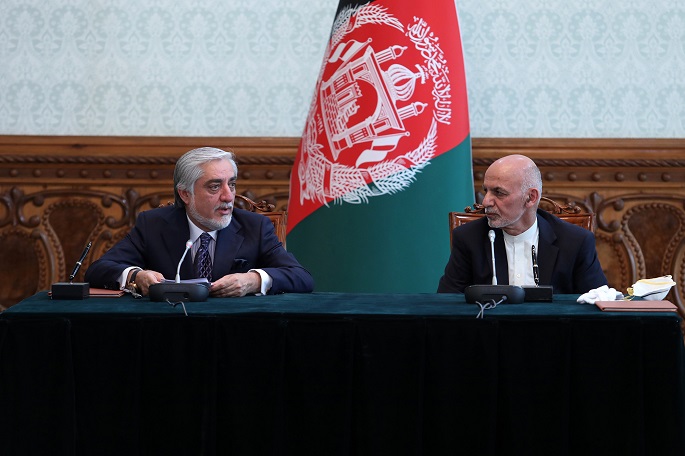Deal on power-sharing draws mixed reactions in Afghanistan
Published : 18 May 2020, 22:49
Afghan President Mohammad Ashraf Ghani and his rival Abdullah Abdullah inked an agreement on Sunday to end a political deadlock following last year's presidential election.
The deal on power-sharing in Afghanistan has drawn mixed reactions among the people, with the majority believing that the deal would lead the country to a better situation.
On Feb. 18, Afghanistan's election commission declared Ghani as the winner of the presidential election nearly five months after the voting, but his rival Abdullah Abdullah disputed the results.
Ghani and Abdullah both took oath as president of Afghanistan on March 9.
Nadir Khosti, a Kabul resident, told Xinhua on Monday that he was optimistic for the deal and hoped it could settle the long political dispute and pave the way for a lasting peace in the country.
"We are going to a peace process with the Taliban and now we're also fighting the lethal COVID-19, so we need political disagreement to be settled," said Khosti, adding that he was very happy with the deal signed between the two leaders.
Under the agreement, Ghani will remain as president, while the former Chief Executive Abdullah will lead the High Council for the National Reconciliation with executive authority to lead the peace process with the Taliban, the key opposition force against the government.
In a short televised statement following the signing of the deal, Ghani hoped that the people of Afghanistan would see a ceasefire in the near future that would follow a lasting peace under Abdullah's leadership, in the country.
Abdullah said that Afghanistan was suffering from war, political instability and the COVID-19 pandemic, hoping that Sunday's deal could be the end of crisis.
"The Taliban militants are intensifying attacks, they are killing people in mass and they are destroying the infrastructure. I hope the unity of Ghani and Abdullah helps Afghanistan to embrace peace and stability and brings the Taliban militants to the negotiation table," resident Sayyed Jafar told Xinhua.
"I hope president Ghani and Abdullah should work hand-in-hand to bring positive changes to the security and economic sectors as soon as possible, at a time when people are suffering from militancy and the COVID-19 related health and economic crisis," Jafar said.
The international society welcomed the deal, hoping it could pave the way for an intra-Afghan peace talks in the country.
The UN Assistance Mission in Afghanistan (UNAMA) hailed the agreement reached between Ghani and Abdullah as it helps resolve the political impasse and enable the leaders to address the grave challenges facing the country.
"The Mission acknowledges that both sides had to make compromises to reach this important agreement. It is now hoped that the spirit of cooperation will continue, with all elements in the government working together to strengthen progress in good governance, the rule of law, and anti-corruption, and to protect the rights of all citizens while continuing the advancement of Afghan women," the mission said in a statement.
The statement noted that "in line with its mandate, UNAMA stands ready to help the government and people of Afghanistan."
However, not all Afghans agree with Khosti and Jafar. Another Kabul resident and a university student Fatima Seddiqui said the deal had no difference with that of 2014. "Both are just power-sharing, nothing else, while we spent millions of U.S. dollars to hold the presidential election."
"Nothing tangible had been done over the past five years when Ghani and Abdullah were in power, except the two sides' efforts to reject each other and nothing helpful will the people see in the future after Sunday's agreement," she told Xinhua.
"The power-sharing deal would make both leaders busy with the interests of their own and their supporters, rather than with paying attention to the reconstruction of our war-devastated country," she added.


